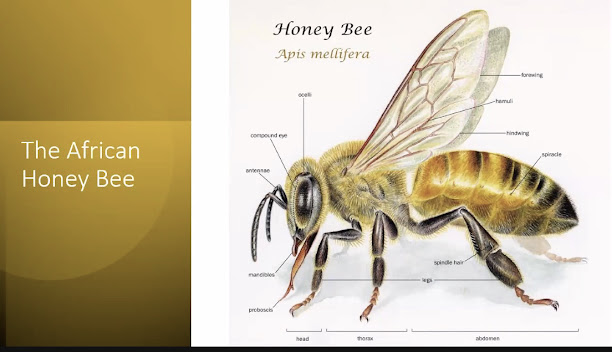Float like a butterfly, sting like a bee almost sums up the difference between the Cape and African honey bees and their northern hemisphere counterparts, which are far less aggressive, as Muhammad Ali's famous quote suggests.
Pete Standish of Pete's Bees on the far East Rand told the club at the meeting this week that the local bees are also thriving compared with those in Western Europe and North America.
The Cape Honey Bee has also seen a dwindling in numbers over the past decades due to disease and, according to him, sometimes unnecessary deforestation of bluegum forests where honey bees thrive.
The African honey bee colonies have been on the increase in the last five years, bucking a worldwide trend. Pete said thanks to their more aggressive nature they have proved to be hardier than their northern counterparts and that beekeeping as an industry has been growing, leading to more colonies.
Because of South Africa's relative isolation, diseases are also less prevalent than, say in North America, where farming is done on a vast scale with tens of thousands of hives being moved to different parts of the country and diseases being spread in that way.
Bees typically live in colonies of 50 000 to 80 000 bees. There are three kinds of bees; worker bees, all female, who do all the collecting of nectar and pollen, ranging up to 5 km from the hive to do so and who live for about 5 - weeks; drones (all male) who do nothing other than mate with the queen and live for 3 - 5 weeks and the queen, who lays eggs for the next generation of bees and can live up to 5 - 7 years.
Once a drone has mated, it dies.
Pete sells honey and byproducts of his beekeeping and a number of members have said they'd be interested in buying from him, which has prompted Gavin Atkins, chair of the fundraising committee, to suggest regular orders from which a portion of proceedings can go to club funds.
Gavin unveiled plans for the Power of Pennies fundraising effort of the fundraising committee, an attempt to get a regular flow of funds coming into the club account.





No comments:
Post a Comment
Note: only a member of this blog may post a comment.